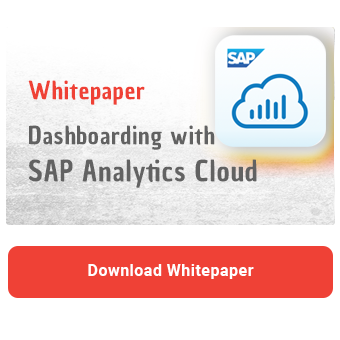In SAP Analytics Cloud Story, there are essentially three different filter options:
- Filtering in the widget (charts, tables)
- Page filter
- Story filter
In this article I will deal with these filters and show you how you can implement them. Furthermore, I will show you an alternative, the so-called Linked Analysis.
Widget filter
The easiest way to filter by characteristic values is the widget filter. Filtering is possible via the Builder Panel or directly via the widget (e.g. a bar chart). Especially in diagrams, values can be excluded ("X" next to the filter icon) in addition to filtering to individual values.
Filters in the Builder Panel cannot be influenced by the user, while changes can be adjusted intuitively directly in the widget.
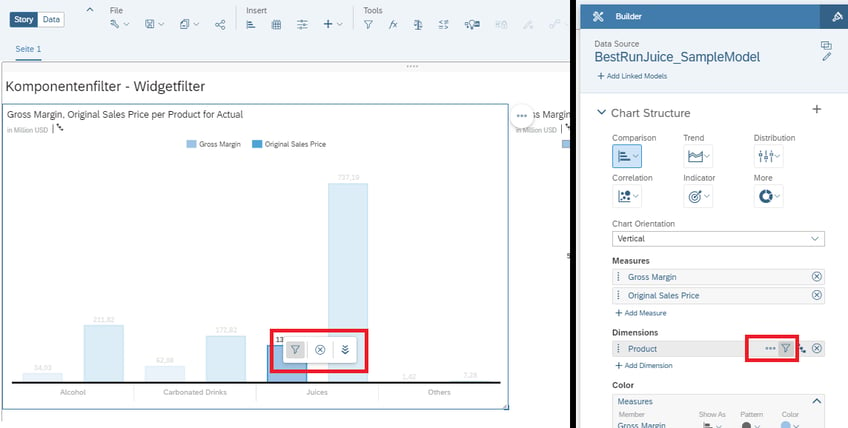
Page filter
To guide the user more intuitively through the dashboard, there is also a page filter that filters individual values with the help of an optical input control. In this case it is possible to filter by characteristic values as well as by individual key figures. An advanced filter is also available for the characteristic values.
Note: A maximum of one key figure can be exchanged in the diagram for the key figures.
Dimensions
To add a page filter, an input control is added from the menu (section "Insert"). You can then filter by dimensions from the menu that opens. In the dialog window that opens, the values of the input control are edited. In addition to selecting the dimension values (members), it is also possible to display unbooked members or to define the filter settings for the user.
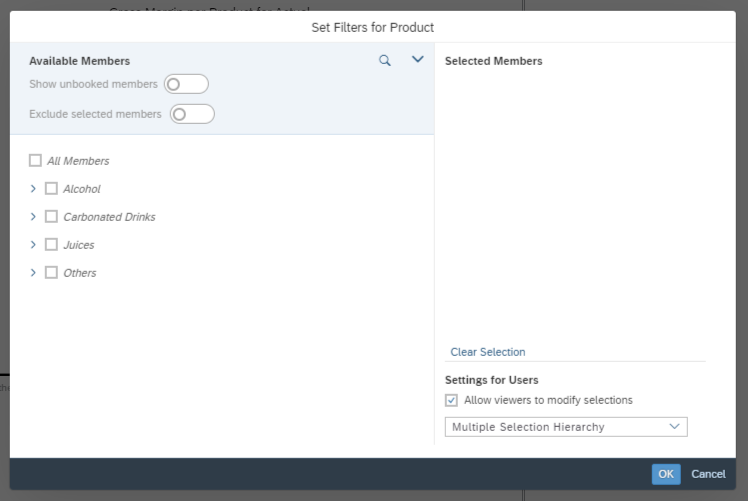
Tip: To make the selection boxes visible, the grey rectangle of the input filter at the lower right corner can be enlarged.
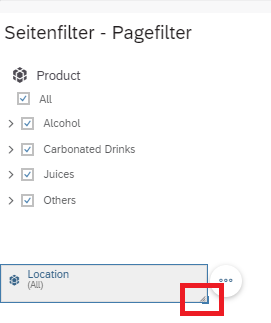
New in Q4 2019
This release enables dynamic time filters. This means that you can filter dynamically according to the last or next period (year, quarter,...).
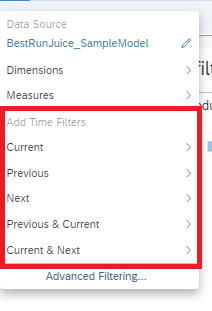
Advanced filters
Advanced filters are also possible for attributes. If a new input control is added, you can select "Advanced Filtering..." from the menu that opens (last entry) can be selected. This makes it possible to create more complex filter conditions. However, these conditions can only be viewed and adjusted by the creator and not by the user. This filter is comparable to the filter from the Builder Panel.
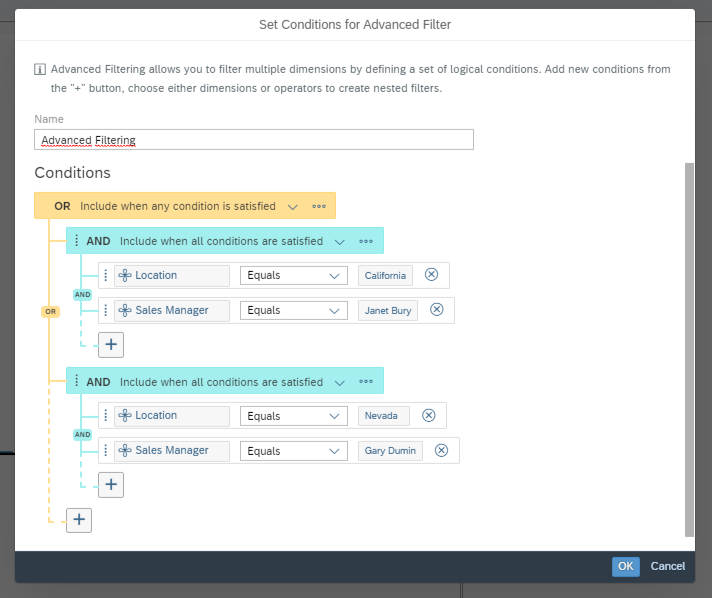
Measures
If the input control is added directly from the menu, measures can also be selected in the menu that opens. However, this filter refers to the definition of ranges and not to the selection of a single measure.
Dashboarding with SAP Analytics Cloud -
Download the whitepaper here!
To add an input filter for a single key figure, select the penultimate entry "+ Create Measure Input Control" in the selection box for key figures in the Builder Panel. This filter can only be used to exchange one measure in the diagram at a time (multiple selection is not possible). In the dialog window, you can select the measures that are available to the user in the input control.
Note: Do not select the same measures in the dialog box for the selection as in the Builder Panel, otherwise an error message will appear in the diagram.
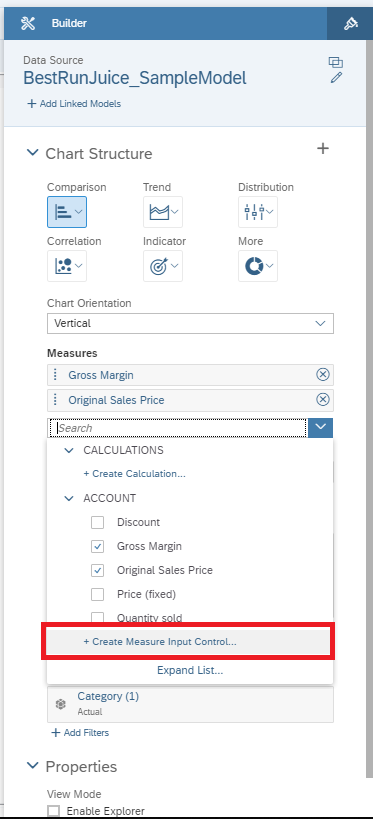
Story filter
As the name suggests, a filter can be set for the entire dashboard with the Story filter. This filter also applies to all subpages of a story. Note that a story filter can only affect one model. In addition to characteristic values, key figure ranges can also be selected. In the menu, this filter is located in the "Tools" section and is represented by a funnel.
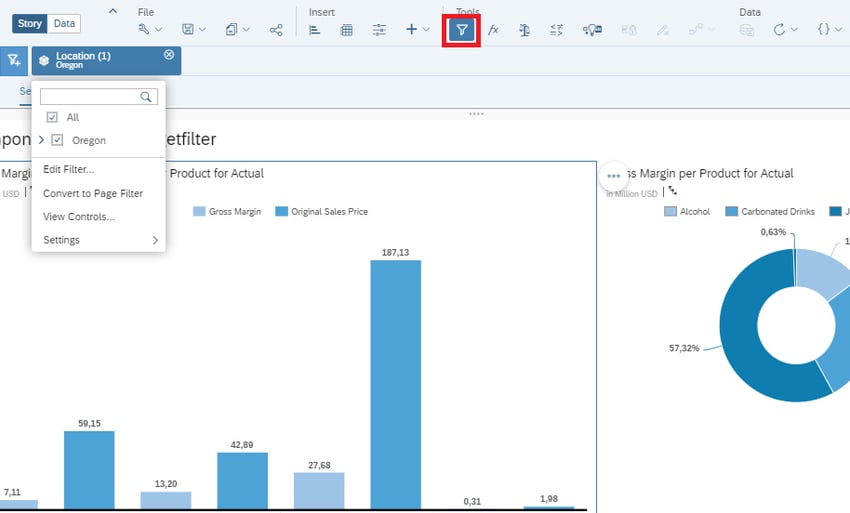
It is also possible to convert a page filter to a story filter (story filter to page filter as well). To do this, select the second icon from above in the context menu of the page filter. The story filter can be used, for example, if you want to filter according to a specific range or period of time.
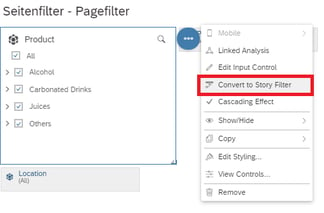
Alternative - Linked Analysis
Linked Analysis is not primarily a standalone filter. It is used to connect different widgets with a common model.
Used with Page Filter
For example, it can be applied to the page filter to select the widgets to include.
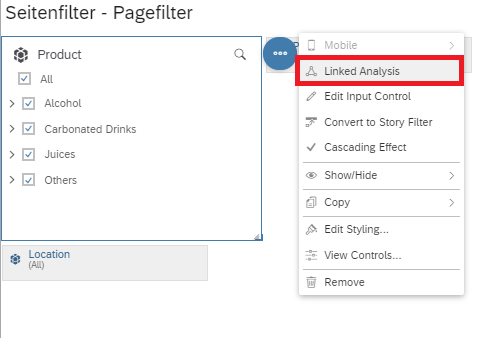
Used with charts
The linked analysis can also be used for charts. A click on "Carbonated Drinks" in the ring chart, for example, filters the linked bar chart.
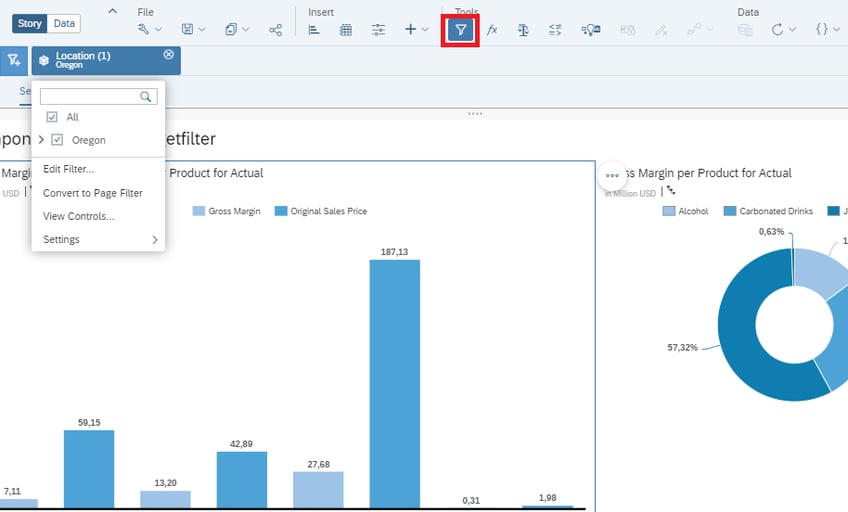
- Multiple / single widgets
- Entire page
- Entire Dashboard
For charts, however, user-friendliness should be taken into account. It is not immediately obvious to the user that the charts can be used for "filtering". This is especially true if a chart filters the entire dashboard. The user should be made aware of this at this point.
SAP Analytics Cloud, Dashboarding

























